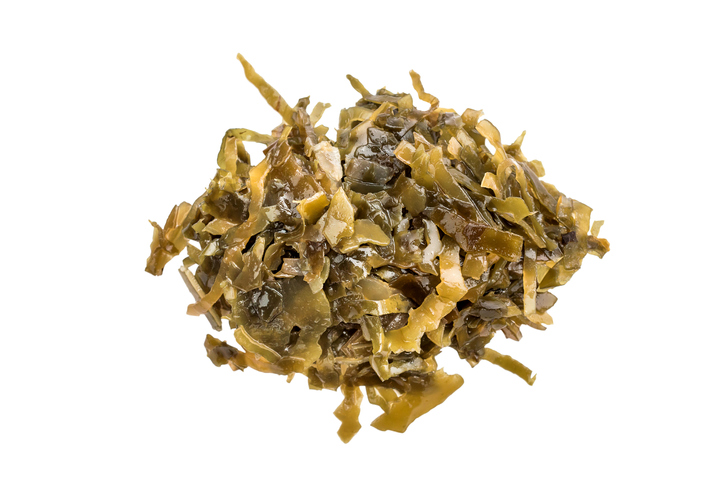Sea Moss In Your Smoothie?

Sea Moss In Your Smoothie?
By Joy Stephenson-Laws, J.D., Founder
Kim Kardashian says she puts sea moss in her smoothies. The 39-year-old socialite, reality TV star and mother of four children follows mainly a plant-based diet.
But sea moss? Really?
Turns out that sea moss, also known as Irish moss, has reportedly been cultivated for thousands of years. It’s actually very popular in Irish and Jamaican culture. Multiple reports say that since the 1800s, the Irish harvested sea moss from their shores. They even consumed it during the Irish Potato Famine in order to combat nutritional deficiencies.
“Sea moss drinks are popular throughout the islands of the Caribbean, particularly in Jamaica and Trinidad, and they are often believed to improve virility,” according to one source.
“In most recipes, the sea moss is soaked in lime juice overnight and then boiled in water, often with a cinnamon stick, until becoming jellylike. After cooling, it is then blended with milk and such sweeteners as nutmeg, sugar, or vanilla.”

Sea moss is a species of red algae. You will likely find it at your local health food store in dried form or capsules and powder. You may also find sea moss in lotions and other skin and cosmetic products. Although the scientific research on this is very limited, sea moss is said to hydrate the skin, promote skin cell renewal as well as calm the skin. Some say that it may even provide relief from sunburns.
As far as being a healthy addition to your diet, sea moss may be the way to go.
“The red seaweed Chondrus crispus (Rhodophyta), commonly known as Irish Moss, is widely distributed in the northern Atlantic and harvested as a raw material for the extraction of carrageenan, which finds wide applications in food and cosmetic industries as thickeners, stabilizers and emulsifiers. Besides a relatively high content of the sulfated polysaccharide carrageenan, this red alga is rich in proteins, peptides, amino acids, lipids and pigments; all of which can impart various health benefits to humans, including neuroprotective activity,” reports the National Institutes of Health (NIH).
Again, scientific research and evidence are limited when it comes to the benefits of consuming sea moss, however, sea moss is definitely nutrient-dense.
Some of the nutrients sea moss contains include:
- Calcium
You probably know that this mineral is essential for strong, healthy bones and teeth. Did you know this mineral may also decrease your risk for colorectal cancer? Recent studies confirm that high calcium intake is associated with a lower risk of colorectal cancer among both men and women. Maintaining the correct levels of calcium in your system may reduce your risk of breast cancer as well. In addition to this, calcium is needed for many vital body processes such as muscle contraction, blood clotting, hormone release, neurotransmitters and more.
- Iron
Iron is an essential component of many proteins and enzymes. It is vital in the formation of red blood cells and lean muscle. If you are low in iron, you may find that you feel very tired.
- Magnesium
This mineral helps regulate blood pressure, contributes to bone metabolism and has antioxidant functions. Magnesium is also great for pain management. Many people use magnesium as a safe alternative to ibuprofen or acetaminophen. Magnesium may even help alleviate leg cramps women may experience during pregnancy.
- Phosphorus
This mineral often does not get the credit it deserves, but it does so much for your body. Phosphorus is almost as abundant in your body as calcium and helps calcium build strong bones and teeth. Phosphorus is also important for how your body stores and uses energy, repairs cells and is needed to make proteins like the one responsible for the oxygen-carrying capabilities of our red blood cells.
- Potassium
This must-have mineral works with sodium to balance the fluids and electrolytes in the body. Potassium helps keep blood pressure under control and may even help reduce kidney stones and bone loss as you age.
- Folate
Folate (also known as vitamin B9) is one of the eight B vitamins. B vitamins help our bodies properly use the food we eat as fuel. They are involved in building DNA that the body uses for cell growth.
- Iodine
The body needs iodine for some of its most fundamental functions. For example, iodine can make the difference between a healthy child and one with intellectual disabilities, or between a sluggish, obese person and a lean, vibrant one. Iodine is important, because it’s used to make two hormones: T4 (storage thyroid hormone) and T3 (active thyroid hormone). These are both made in the thyroid gland, located in the neck. “Low” thyroid, or hypothyroidism, can cause problems including fatigue and a slowed metabolism. Some people can develop hypothyroidism from an iodine deficiency. No iodine, no thyroid hormones.
As always, it is recommended that you speak with a competent healthcare professional before incorporating an unfamiliar food into your diet, especially if you are pregnant, breastfeeding or have any existing health issues. Sea moss should also be consumed in moderation.
Downsides to sea moss?
There is some controversy surrounding carrageenan, which is the extract from red seaweed (sea moss).
“It's also widely used in the food industry, mostly as a thickener and gelling agent. You'll find it in ice cream, cottage cheese, non-dairy milks, jelly, pudding, and infant formula. Unlike gelatin, which is made from animal products, carrageenan is appropriate for vegans,” according to one source.
“Some scientists have presented evidence that carrageenan is highly inflammatory and toxic to the digestive tract, and claim that it may be responsible for colitis, IBS, rheumatoid arthritis, and even colon cancer.”
But on the other hand, “[e]
qually respected scientists have detailed the reasons that this evidence is flawed and misleading, concluding that there is no valid reason to ban its use.”
Multiple nutritionists also say that consuming sea moss is perfectly healthy in moderation. But again, seek the advice of your doctor.
Enjoy your healthy life!
The pH professional health care team includes recognized experts from a variety of health care and related disciplines, including physicians, attorneys, nutritionists, nurses and certified fitness instructors. This team also includes the members of the pH Medical Advisory Board, which constantly monitors all pH programs, products and services. To learn more about the pH Medical Advisory Board, click here.







